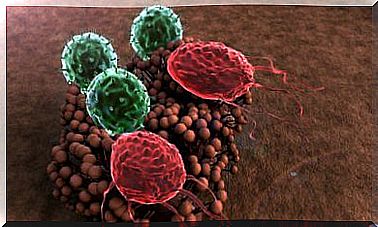Treating Guillain-Barré Syndrome
Guillain-Barré syndrome is the most common demyelinating disease in the world

The Guillain-Barre syndrome is a type of polyneuropathy, which leads to a weakening of the muscles. The syndrome is also known as Landry’s paralysis. This muscle weakness can get worse over time, but it can also improve spontaneously.
The cause of the loss of myelin sheaths, also known as demyelination or demyelinating, is usually an autoimmune disease. A feeling of weakness in the legs is often one of the first symptoms. In the further course, this feeling usually spreads to the upper body.
This inflammation-related polyneuropathy is characterized by a weakening of muscle function. This symptom can persist for several days after infection, vaccination, or surgery.
More about Guillain-Barré Syndrome

The most likely cause of the syndrome is primarily a reaction of the immune system against the body’s own nerves. Since the symptoms can worsen very quickly, it is particularly important that the sick person seek medical advice immediately. The following symptoms can occur:
- General weakness
- Decrease in sensitivity (in some cases)
It is possible for symptoms to go away about 8 weeks after they first appeared. However, around 30% of patients suffer a relapse, sometimes years later. In this context, it should be said that targeted medical treatment can mean faster recovery for the patient .
The disease is fatal in only about 2% of diseases.
diagnosis

Diagnostics begins with a record of the symptoms that are present. For this, the doctor will perform a physical examination and take a closer look at the previous medical history.
As a result of the initial examination, the doctor next orders a series of examinations in order to get an even more comprehensive picture of the patient’s health. A check of the neurological functions can be very informative and reveal possible reflex failures.
Although the scope of the examinations may seem very lengthy, the examinations can usually be carried out in a very short period of time. The timely treatment of the patient requires the necessary examinations to be carried out quickly.
Treat Guillain-Barré Syndrome

Inpatient admission to hospital is primarily important for sick people. The symptoms can develop very quickly and even affect the muscles of the airways to the extent that the disease can be fatal.
That is why mechanical ventilation and other life-sustaining measures form the basis for the treatment of Guillain-Barré syndrome.
Furthermore, the clinical staff must prevent the occurrence of pressure sores. Physiotherapy, for example, is suitable for this, as it can also help maintain muscle tone and the range of motion.
Care should also focus on infection prevention and the specialist staff should regularly check the following functions:
- The breathing
- The activity of the heart (to detect arrhythmias and other complications in good time)
- Arterial blood pressure (to prevent high or low blood pressure)
In addition, the treatment of Guillain-Barré syndrome includes the administration of intravenous immunoglobulins. Also, the plasmapheresis (a method in which the blood is separated into its individual components) may be a good treatment option.
These treatments are safe and can result in faster recovery. The total length of the hospital stay can thus be shortened considerably.
As for drug treatment, corticosteroids are not recommended for Guillain-Barré syndrome and may even make the disease worse.









